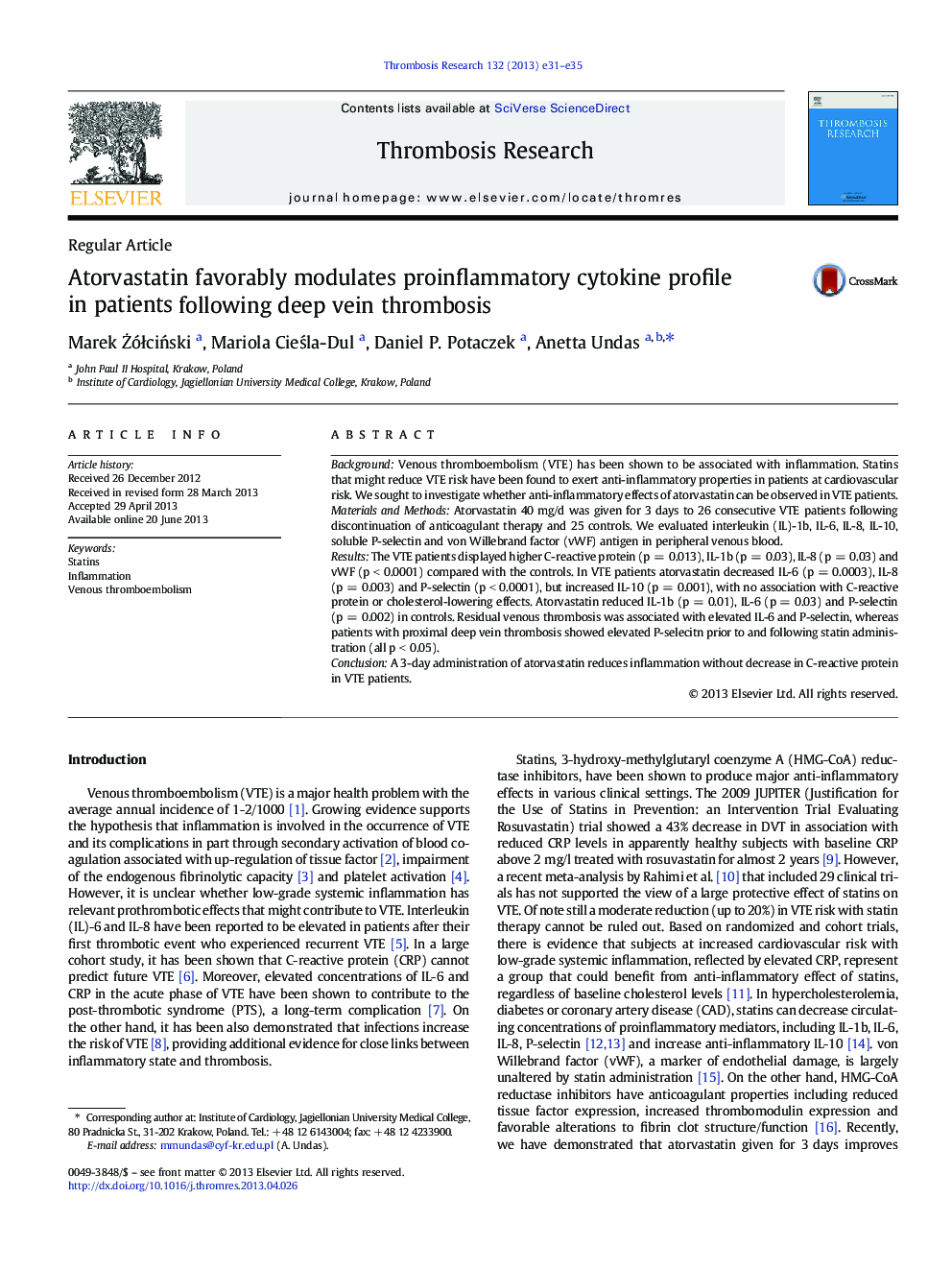| Article ID | Journal | Published Year | Pages | File Type |
|---|---|---|---|---|
| 6002660 | Thrombosis Research | 2013 | 5 Pages |
BackgroundVenous thromboembolism (VTE) has been shown to be associated with inflammation. Statins that might reduce VTE risk have been found to exert anti-inflammatory properties in patients at cardiovascular risk. We sought to investigate whether anti-inflammatory effects of atorvastatin can be observed in VTE patients.Materials and MethodsAtorvastatin 40 mg/d was given for 3 days to 26 consecutive VTE patients following discontinuation of anticoagulant therapy and 25 controls. We evaluated interleukin (IL)-1b, IL-6, IL-8, IL-10, soluble P-selectin and von Willebrand factor (vWF) antigen in peripheral venous blood.ResultsThe VTE patients displayed higher C-reactive protein (p = 0.013), IL-1b (p = 0.03), IL-8 (p = 0.03) and vWF (p < 0.0001) compared with the controls. In VTE patients atorvastatin decreased IL-6 (p = 0.0003), IL-8 (p = 0.003) and P-selectin (p < 0.0001), but increased IL-10 (p = 0.001), with no association with C-reactive protein or cholesterol-lowering effects. Atorvastatin reduced IL-1b (p = 0.01), IL-6 (p = 0.03) and P-selectin (p = 0.002) in controls. Residual venous thrombosis was associated with elevated IL-6 and P-selectin, whereas patients with proximal deep vein thrombosis showed elevated P-selecitn prior to and following statin administration (all p < 0.05).ConclusionA 3-day administration of atorvastatin reduces inflammation without decrease in C-reactive protein in VTE patients.
